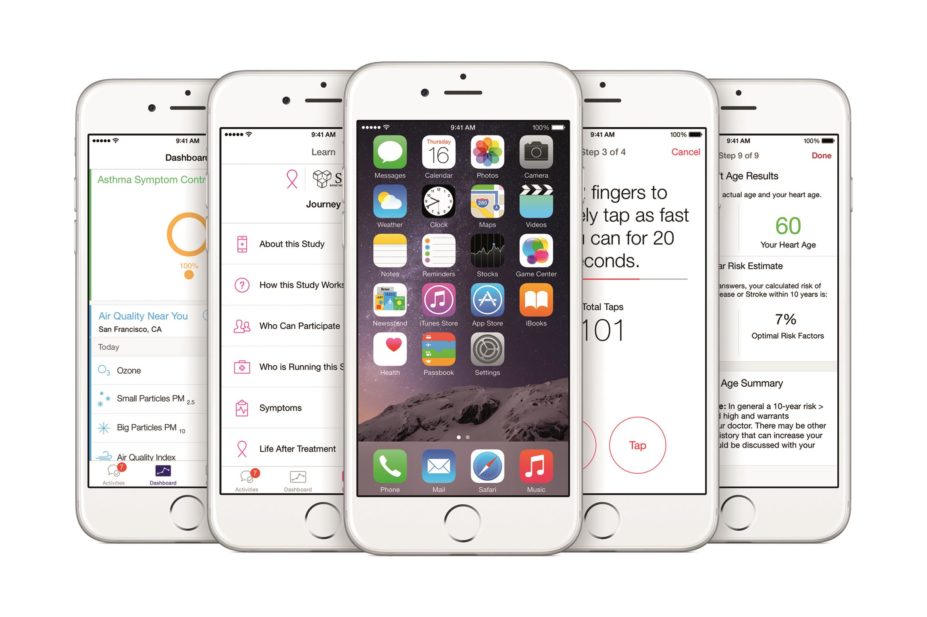
Apple
You can do things with a smartphone that would barely have seemed imaginable just a decade ago. Technology giant Apple has been collaborating with software developers to create apps that enable researchers easily to recruit large numbers of volunteers to studies. The enabling software — ResearchKit, built for iPhones — can reach out to would-be participants, explain to them what a study involves, obtain consent and then collect data through surveys and other means (such as measuring gait using the smartphone’s inbuilt gyroscope).
Notwithstanding the great potential of this technology, a healthy scepticism should be applied. As digital technologies provide new models for research, the scientific community must grow, too; and only through scrutinising the validity of the results will the methods be refined.
Researchers interviewed in the piece have noted difficulties with verifying whether participants actually have the disease under investigation and ensuring the reliability of data gathered outside a clinic setting. Yet if you can recruit thousands of individuals in a matter of hours, as some of the investigators working with ResearchKit have discovered, these challenges may seem like rather small hurdles. Ways of filtering out the noise will become ever more reliable as the underpinning algorithms grow in sophistication.
Understanding the opportunities for, and limitations of, this technology will require a new generation of technology savvy clinical researchers. It may be the case that these mobile innovations will work best when they are combined with real-world interaction with clinicians and researchers. Time will tell how valuable this research tool will be, and how much of this exciting potential will be realised.


